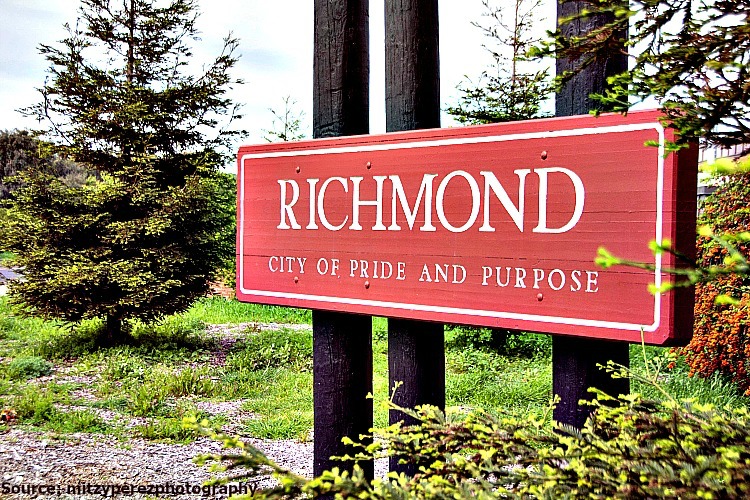“OK, let’s go save these kids.” This was the expression used by a fellow teacher before the school year began. As I heard the expression, I wondered if the remark had any degree of truthfulness. Serving a community that is notorious for its poverty and high crime rate, as is the city of Richmond, CA, can convince any outsider that help is needed. It may seem obvious, but the question remains: do we need an outsider to come do the job of those who already form part of the community in question?
Most of the teachers I have met, those who taught me in high school, and those who I work with today, commute to work. They live in neighboring suburbs, drive or take the Bay Area Rapid Transit system into Richmond, and at the end of the day they drive, or “BART” themselves back to their safe, suburban homes. They eat nonfat plain yogurt for breakfast, snack on carrots and hummus for brunch, and munch on an avocado and shrimp chopped salad for lunch. All of this is perfectly fine, but the problem arises when we look at their students’ lifestyle. Most students don’t live in suburbs, most walk to school, like I sometimes did for a full forty minutes, they don’t eat foods that would cost them money that they struggle to attain in the first place. Teachers simply do not lead lifestyles that resemble their students’, and this is problematic.
Everyone has the right and the liberty to create a lifestyle that is in accordance with the work they put in. Teaching, however, is a career that requires self-imposed limitations. All careers require some form of sacrifice, but teaching is one of the few careers that require a sacrifice for the well-being of other people. There are long hours, comparatively low-pay, out-of-pocket classroom furnishing—but there is also the demand for sacrificing personal comfort. A teacher will never be able to effectively connect with the students they teach, unless they share in their pupils’ lifestyle. This means that teachers must make their way down from the comfortable hills, and enter the valleys and cities, in order to experience the life of a student first-hand.
I listen to students constantly complain about the lack of connection they have with teachers. Usually, the complaints are formulated using expressions like, “my teacher is annoying!” or “they don’t know how to teach!” But, behind the seemingly offensive, and almost tangibly painful remarks, there is a student aching to be taught by someone they can identify with. This is the reason why we must stop outsourcing teachers; we need teachers who are natives of the community they teach. We need Richmond men and women to graduate high school, attend and graduate university, and come back to Richmond in order to reinvigorate those citizens who can no longer perceive the pride and purpose that characterizes them. Richmond must be taught by Richmond.
In regards to my colleague’s remark about “saving these kids,” I respond: perhaps the kids do need a savior, but the savior is a native from Richmond. The teachers who will “save” the kids from Richmond are those who live the life Richmond students live. The savior will live in Richmond like their students, walk to campus like their students, eat chips and burgers like their students. The savior will not come from a suburb, totally oblivious to the daily reality their pupils confront. The savior is here, and they are from Richmond.


Mando
Well…………I beg to differ.
I grew up and continue to live in Richmond, but work in Charter schools- yet this “outsider ” line gets tossed at me many times…why? Could it be that this tagline is being used to counter the charter school evolution in Richmond considering that most are led by outside groups…(all except 2 systems of course Richmond College Prep, and the AMPS Schools). And really, this is an off fact. Richmond is not unlike many inner city areas i.e Compton, East Los, and so forth. It does require folks who can connect to the kids, who care and not coddle inner city students and use the grit of the city to inspire determination among kids , to challenge themselves . I agree that it is far more empowering to have folks of color teaching kids of color, AND it is even of much higher importance that those folks of color be ready to challenge students intellectually and not just in psycho therapeutic feel good talk. Its not about burning couches, pumping fists and marching on streets….anyone can do that, but how many youngsters can handle trigonometry?
The flip side is that Richmond data has hovered among the worst in the state for decades, even when taught by folks from Richmond ( I know this first hand as a former RUSD student). Its a sad day when an elementary school has 97% of 3rd graders below reading proficiency….Richmond has many of these 3rd grade classrooms taught by all kinds of folks, even folks from the town! My friends, the problem of teaching is much deeper than nativist notions! Oh yes….did we touch on the teacher shortage matter??? A much longer discourse may be needed.
Robel Espino
I appreciate your response, Mando. For the record, I am pro-choice. I attended public district schools for elementary and middle school, and I attended a charter school for high school. I currently work at a charter middle/high school, and I love it. Perhaps we should begin to emphasize on the teacher shortage and the “school to prison pipeline” phenomenon. These are disgraceful realities Richmond faces, to say the least. Maybe you can draft a blog about these injustices, and provide solutions for the benefit of us all. I am sure that the discussion will be of a great beneficial impact. Thanks.
Mando
Thanks for responding!
…..I will see to write that blog post.